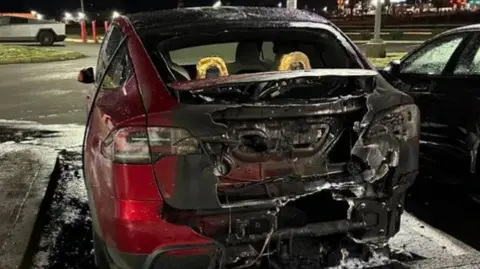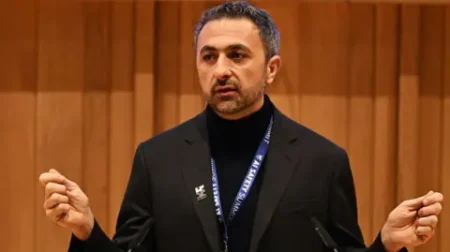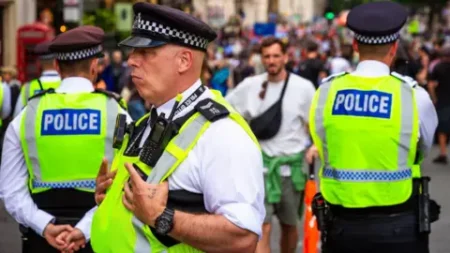In recent developments surrounding Tesla, a significant legal case has emerged involving three defendants accused of vandalism against the electric vehicle company spearheaded by Elon Musk. US Attorney General Pam Bondi announced on Thursday that these individuals could face sentences of up to 20 years in prison for their alleged involvement in acts described as domestic terrorism. The series of attacks has raised concerns due to their increasing frequency and the level of damage inflicted on Tesla properties, including dealerships and charging stations across the nation.
Attorney General Bondi characterized the destruction caused by the suspects as not mere vandalism, but rather acts that pose serious threats to public safety and property. She indicated that the damage inflicted both to Tesla cars and the establishments housing them warranted the severe legal consequences. This classification as domestic terrorism allows prosecutors to potentially secure longer sentences, as there isn’t a specific US law directly labeling such actions under domestic terrorism but there are provisions allowing for enhanced penalties based on the motives behind the crime.
The chaos surrounding Tesla isn’t isolated, as dealerships within the US have experienced various acts of aggression. Protests against Musk’s perceived ties and influence over political matters, especially during the Trump administration, have escalated to vandalism and arson. The targets have particularly included Tesla dealerships, which have suffered physical damage from these protest actions.
Bondi’s statement included details about the individuals involved, referencing reports from earlier arrest announcements. The suspects include 42-year-old Lucy Nelson, who was apprehended near a Tesla dealership in Colorado where she allegedly possessed a destructive device and vandalized property valued between $5,000 and $20,000. Nelson’s involvement included using a Molotov cocktail during an attack and causing substantial damage, signifying the severity of her actions. Meanwhile, the two other suspects involved were Adam Matthew Lansky, 41, and Daniel Clarke-Pounder, 24, both facing charges related to the possession of destructive devices and arson acts targeting Tesla locations.
Lansky’s actions were specifically linked to a Molotov cocktail attack directed at a dealership in Salem, Oregon, where he has yet to enter a plea. Clarke-Pounder has been charged with similar offenses in North Charleston, South Carolina, involving arson at Tesla charging stations. The accusations against these three individuals exemplify a troubling trend that the attorney general believes must be met with significant legal ramifications.
Pam Bondi emphasized the intent behind these actions, suggesting that engaging in these activities represents a broader trend of domestic terrorism against private entities. She made it unequivocally clear that such acts will not go unpunished, underscoring that justice will be pursued to hold the perpetrators accountable. This stance aligns with broader societal concerns where acts of vandalism escalate into violent protests against corporate entities that individuals may oppose on different grounds.
The rising tide of vandalism against Tesla is also indicative of the polarized political climate. Musk’s visibility and the prominence of Tesla have drawn both loyal supporters and fierce critics alike, culminating in reactions that have turned to violence rather than constructive dialogue. Supporters of the Trump administration, in particular, have reported targeting that exacerbates tensions further, highlighting complexities around free speech and the limits of protest actions.
Conclusively, as the legal proceedings for the defendants unfold, they will serve as a critical metric for how the US judicial system addresses acts deemed as domestic terrorism and the implications behind corporate political alignments. The stakes are undeniably high, with a potential 20-year sentence looming for those involved, marking a significant moment in the interaction of corporate America, public sentiment, and the law.










